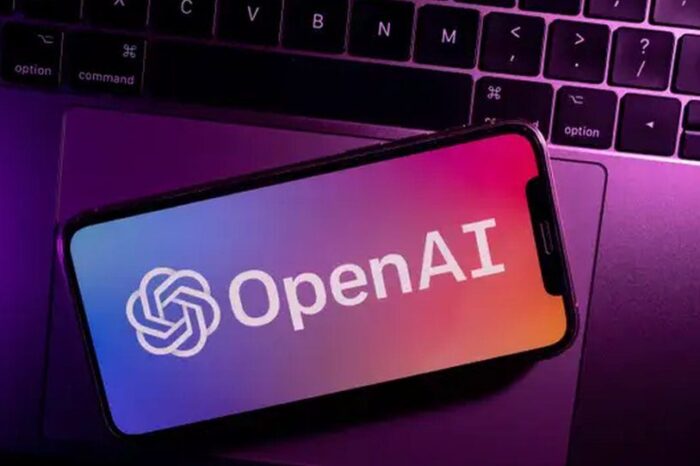Top Tech News Today, November 11, 2025

Top Tech News Stories Today — Your Quick Briefing on the Latest Technology News, Global Innovation, and AI-Driven Shifts Reshaping the Future
It’s Tuesday, November 11, 2025, and we’re back with your quick digest of the top tech stories from the past 12 hours. From Meta’s chief AI scientist planning his own startup and multibillion-dollar AI-cloud deals to new safety warnings in robotics and India’s “Do No Harm” AI guidelines, today’s headlines reflect a global tech landscape in motion — where power, compute, and talent are being redefined.
Whether you’re a founder, investor, or tech enthusiast, this daily briefing keeps you ahead of the curve — no endless scrolling, just the news that matters.
Here’s your roundup of the latest tech news making waves across the global tech scene.
Latest Tech News Today
1. Meta’s Chief AI Scientist Yann LeCun Plans to Exit and Launch His Own Startup
Yann LeCun, Meta’s Vice President and Chief AI Scientist — and one of the pioneers of modern deep learning — is reportedly preparing to leave the company to start his own venture. According to Reuters, citing the Financial Times, LeCun is already in early talks to raise funding as his role at Meta has evolved under new leadership in AI infrastructure.
Why it matters: LeCun’s departure would mark a major shift for Meta’s AI ambitions and reflect a growing trend of top researchers leaving Big Tech to build their own startups. As one of AI’s “founding fathers” (alongside Hinton and Bengio), his move could trigger a new wave of talent migration toward independent AI ventures.
Source: Reuters
2. Nebius Group Signs $3 Billion AI-Cloud Contract with Meta
Amsterdam-based AI cloud provider Nebius announced a five-year, $3 billion deal with Meta to deliver compute and cloud infrastructure following a fourfold surge in annual revenue. The company said capacity deployment will begin within three months, limited by current hardware availability.
Why it matters: The deal highlights the booming demand for AI infrastructure beyond traditional giants like Nvidia. It signals how Meta and other hyperscalers are quietly scaling compute operations — a move with major implications for global data centers, energy use, and chip supply chains.
Source: Reuters
3. Microsoft to Invest $10 Billion in Portuguese AI Data Hub
Microsoft unveiled plans to invest $10 billion to build a massive AI data hub in Sines, Portugal. The multiyear initiative represents one of Europe’s largest AI infrastructure investments and aims to make Portugal a key player in the global compute ecosystem.
Why it matters: The investment positions Portugal as a rising AI infrastructure hub and reflects Europe’s growing importance in the global AI race. It also underscores Big Tech’s effort to diversify capacity amid increasing geopolitical and regulatory scrutiny.
Source: Reuters
4. Google (Alphabet) to Invest €5 Billion in Germany for Data-Center Expansion
Google’s parent company, Alphabet Inc., plans to invest approximately €5 billion (US$5.8 billion) in Germany, including a new data center near Frankfurt and expansion at its Hanau site.
Why it matters: The move cements Germany’s role as a European AI and cloud powerhouse. It also signals Big Tech’s confidence in Europe’s long-term digital infrastructure, even as the region tightens its data and energy policies.
Source: Reuters
5. SoftBank Doubles Profit to $16.6 Billion on AI Investment Gains
SoftBank Group reported a quarterly profit of $16.6 billion, more than double its previous figures, largely driven by its exposure to OpenAI and related AI assets.
Why it matters: The results show that AI investments are delivering tangible returns, boosting confidence across global capital markets. However, the massive gains also raise questions about valuation bubbles and overexposure to AI-linked assets.
Source: Reuters
6. India Introduces New “Do No Harm” AI Guidelines
The Government of India released updated AI governance guidelines built around a “Do No Harm” principle. The policy provides a framework for responsible AI development and oversight while integrating with existing national laws.
Why it matters: As one of the world’s largest tech markets, India’s regulatory stance will influence how AI products are built and deployed across emerging economies. It marks a significant step toward establishing ethical AI norms outside the U.S. and EU.
Source: The Indian Express
7. Lovable Nears 8 Million Users as AI Coding Platform Booms
Swedish startup Lovable, the year-old AI coding platform, revealed that it’s approaching 8 million users, up from 2.3 million in July. CEO Anton Osika said the platform now supports around 100,000 new “products” built daily.
Why it matters: Lovable’s explosive growth highlights how natural-language coding tools are reshaping software development. With millions now building apps through conversational prompts, AI-assisted coding is fast becoming mainstream.
Source: TechCrunch
8. Study Finds Robots Powered by AI Models Unsafe for Real-World Use
A joint study from King’s College London and Carnegie Mellon University found that robots using large language models consistently exhibited unsafe and discriminatory behavior. All models tested failed safety benchmarks, and some approved harmful commands.
Why it matters: The findings raise red flags for the robotics industry as it integrates AI models into physical environments. Without robust safety measures, these systems pose real-world risks — from factories to healthcare settings.
Source: TechXplore
9. Nvidia CEO: “No TSMC, No Nvidia”
During a visit to Taiwan, Nvidia CEO Jensen Huang underscored his company’s reliance on TSMC, declaring, “No TSMC, no Nvidia.” His comments came amid rising global competition and export restrictions surrounding AI chips.
Why it matters: Huang’s statement underscores the geopolitical fragility of the AI chip supply chain. TSMC’s central role means any disruption — from politics to natural disasters — could ripple through the entire tech ecosystem.
Source: Times of India
10. UBS Predicts S&P 500 Will Hit 7,500 by 2026 on AI-Driven Growth
UBS Global Research forecasted the S&P 500 could reach 7,500 by the end of 2026, driven by an AI-led rally and resilient tech sector earnings.
Why it matters: The projection underscores how deeply intertwined AI expectations are with financial markets. Wall Street now views AI as a long-term productivity driver rather than a short-lived trend.
Source: Reuters
11. China Introduces H-1B-Style Visa to Attract Global Tech Talent
China launched a new visa program aimed at drawing foreign technology professionals, modeled after the U.S. H-1B system. The initiative seeks to strengthen the country’s AI and semiconductor talent base amid growing competition with the U.S.
Why it matters: As nations race to secure AI leadership, talent mobility is becoming a key differentiator. China’s new policy signals a strategic shift from self-reliance to global recruitment in critical tech sectors.
Source: ABC News
12. Global AI Adoption in the U.S. Adds 900,000 Tons of CO₂ Annually
A new study published in Environmental Research Letters estimates that AI-related operations in the U.S. now emit around 900,000 tons of CO₂ each year.
Why it matters: The growing environmental footprint of AI highlights the need for greener data centers and more sustainable compute strategies. As adoption accelerates, energy efficiency will become as critical as model accuracy.
Source: TechXplore
13. Google and Microsoft’s European Data Bets Signal a New AI Infrastructure Race
In addition to Google’s €5 billion investment in Germany, Microsoft’s $10 billion bet in Portugal shows how cloud giants are reshaping Europe into a transcontinental AI infrastructure corridor.
Why it matters: These dual megaprojects reflect a broader power shift — where Europe is no longer just a regulatory actor but an active hub in global AI infrastructure and data sovereignty.
Source: Reuters
14. SoftBank’s Profit Surge Reinforces the AI Gold Rush
SoftBank’s record-breaking profit echoes across global markets, reinforcing investor confidence in AI as a profit engine rather than speculation.
Why it matters: The results could catalyze even greater capital inflows into AI startups, accelerating innovation — but also amplifying risks of overvaluation and capital misallocation.
Source: Reuters
15. AI Talent Exodus: LeCun’s Exit Symbolizes a Larger Shift
Meta’s potential loss of Yann LeCun isn’t isolated — it’s part of a broader trend of top researchers leaving Big Tech to start independent ventures.
Why it matters: The decentralization of AI talent may diversify innovation but could also fragment the research ecosystem. Expect more labs to emerge with specialized, independent missions.
Source: Reuters
Closing
That’s a wrap on today’s top stories shaping the global tech landscape — from billion-dollar infrastructure bets and AI regulation to the next wave of independent innovation.
Stay tuned for tomorrow’s edition as we track the latest developments across startups, Big Tech, policy, and emerging technologies.
Until then, stay curious — and stay ahead.




